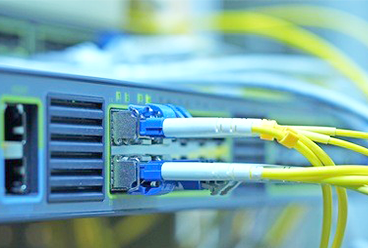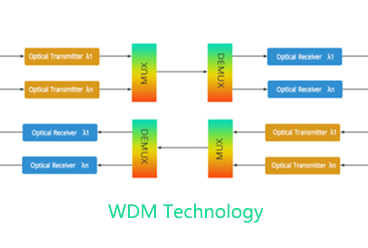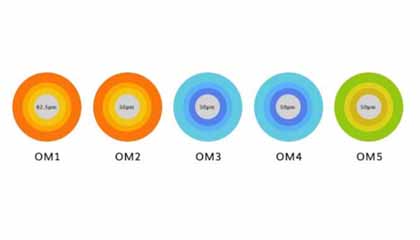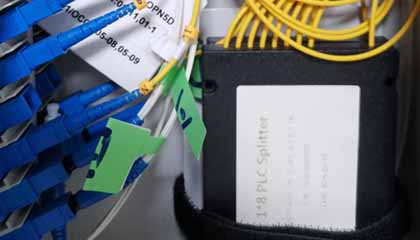Selecting the appropriate SFP (Small Form-factor Pluggable) module is a crucial decision that affects network efficiency, cost, and scalability. Two common options available are BIDI (bi-directional) single-fiber SFP modules and dual-fiber SFP modules. Each type offers distinct advantages and suits specific deployment scenarios.
What are BIDI Single-Fiber SFP Modules?
BIDI SFP modules use a single optical fiber for both transmitting (Tx) and receiving (Rx) data. This is achieved by employing WDM (Wavelength Division Multiplexing) technology, where different wavelengths are used for transmission and reception.
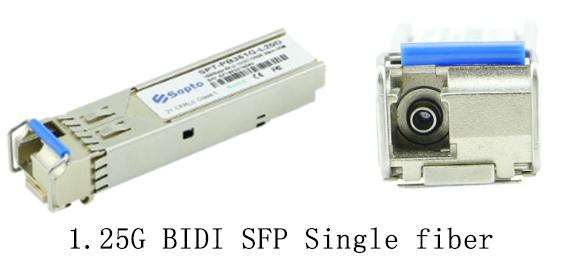
Advantages of BIDI SFP Modules
Fiber Utilization Efficiency: Since only one fiber is needed, BIDI modules significantly reduce fiber consumption, making them ideal for scenarios where fiber availability is limited.
Cost Savings: Reducing the number of fibers required lowers installation and maintenance costs.
Simplified Infrastructure: They are well-suited for point-to-point connections in environments where space is constrained, such as metropolitan networks and enterprise campuses.
Considerations
Higher initial cost for BIDI modules compared to dual-fiber modules.
Dependency on precise wavelength matching between paired modules.
What are Dual-Fiber SFP Modules?
Dual-fiber SFP modules use two fibers: one for transmitting data and the other for receiving it. These modules are the traditional choice for most fiber optic networks.
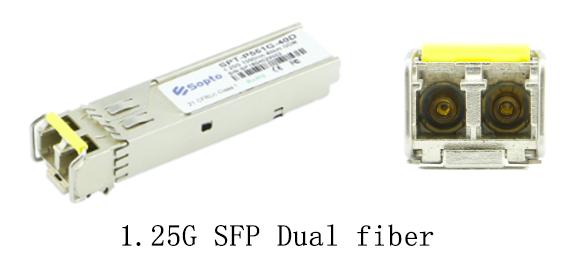
Advantages of Dual-Fiber SFP Modules
Standardization: Widely adopted and supported across various network equipment.
High Availability: Dual-fiber SFPs are more readily available and often less expensive than their BIDI counterparts.
Ease of Deployment: Simpler to configure and troubleshoot due to their straightforward design.
Considerations
Requires twice the fiber infrastructure compared to BIDI modules.
Higher long-term fiber installation and maintenance costs.
Key Factors to Consider When Choosing
Fiber Availability: If you have limited fiber resources, BIDI SFP modules are a better option due to their efficient use of a single fiber.
Budget: For scenarios with sufficient fiber resources, dual-fiber SFP modules may offer a more economical solution, especially for large-scale deployments.
Network Design: Evaluate the scalability and complexity of your network. BIDI modules are excellent for compact and dense installations, while dual-fiber modules may be preferable for extensive networks.
Compatibility: Ensure compatibility between your SFP modules and network equipment. BIDI modules require paired configurations with matching wavelengths.
Typical Applications
BIDI SFP Modules: Commonly used in FTTH (Fiber to the Home), metropolitan area networks, and scenarios with constrained fiber resources.
Dual-Fiber SFP Modules: Frequently deployed in data centers, enterprise networks, and long-haul communication systems.
The choice between BIDI single-fiber SFP modules and dual-fiber SFP modules depends on your specific network requirements. If optimizing fiber usage and reducing infrastructure costs are top priorities, BIDI modules offer an attractive solution. However, for networks where fiber resources are abundant and cost-effective scalability is a priority, dual-fiber modules remain a solid choice.
Sopto Technology is a SFP modules manufacturer, which can provide various types of compatible BIDI single fiber SFP and dual fiber Modules, including SFP, SFP+, SFP28, QSFP+, QSFP28, etc. Bulk purchase, enjoy special discounts, welcome to inquire [email protected] . whatsapp : https://wa.me/+8618688759008/
Tags:BIDI SFP ,dual fiber , single fiber sfp ,SFP modules
— END —




